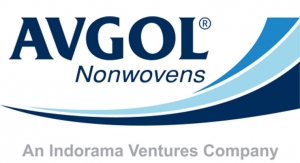11.17.20
Nippon Shokubai and LiveDo Corporation, both headquartered in Osaka, Japan, and Total Care System, headquartered in Fukuoka, Japan, are jointly developing a variety of technologies to promote the growth of systems that recycle disposable diapers, the use of which continues to increase. The three companies have recently developed a new technology for recycling superabsorbent polymers (SAPs) in used diapers. The technology can be applied to a wide variety of SAPs distributed worldwide.
On March 31, 2020, the Ministry of the Environment released the Guidelines for Recycling Used Disposable Diapers. The Ministry of Land, Infrastructure, Transport and Tourism (MLIT) is also aiming to establish a guideline for the acceptance of used disposable diapers into the sewage system based on the New Sewerage Vision Acceleration Strategy. Recycling of used disposable diapers, the amount of which continues to increase, is thus expected to be promoted.
Total Care System was the first in Japan to build a recycling system for used disposable diapers, one of the few in the world, and it has been in the business for 15 years. Disposable diapers are mainly composed of pulp, plastic, and SAPs. Recycled pulp has been effectively used as a raw material for building materials (e.g., exterior and interior wall materials), and plastic has been thermally recovered as solid fuel. Currently, research and development of material recycling are underway.
Nippon Shokubai, which has the world's largest SAP market share (based on production volume), joined the initiative in November 2018 to explore recycling technologies for SAPs, which had remained a challenge, and succeeded in developing new recycling technologies through joint research with the two partners: major disposable diaper manufacturer LiveDo and Total Care System.
The recycling process for used disposable diapers used to face the challenge that SAPs, which would swell from absorbing urine, reduced the recovery rate of paper pulp, or even if SAPs were recovered, they were difficult to reuse because of the significant decrease in performance.
The three companies jointly developed the following technologies to overcome this challenge.
These technologies are designed to reduce energy consumption during recycling and to protect the water quality of rivers and other bodies of water. They can also be applied to all SAPs produced by Nippon Shokubai, as well as to various SAPs around the world.
In addition to raising these technologies to a practical level, the three companies, which are a raw material manufacturer, a disposable diaper manufacturer, and a recycling business, plan to work together to develop and commercialize materials and products that are easy to recycle and new recycling technology for used disposable diapers.
On March 31, 2020, the Ministry of the Environment released the Guidelines for Recycling Used Disposable Diapers. The Ministry of Land, Infrastructure, Transport and Tourism (MLIT) is also aiming to establish a guideline for the acceptance of used disposable diapers into the sewage system based on the New Sewerage Vision Acceleration Strategy. Recycling of used disposable diapers, the amount of which continues to increase, is thus expected to be promoted.
Total Care System was the first in Japan to build a recycling system for used disposable diapers, one of the few in the world, and it has been in the business for 15 years. Disposable diapers are mainly composed of pulp, plastic, and SAPs. Recycled pulp has been effectively used as a raw material for building materials (e.g., exterior and interior wall materials), and plastic has been thermally recovered as solid fuel. Currently, research and development of material recycling are underway.
Nippon Shokubai, which has the world's largest SAP market share (based on production volume), joined the initiative in November 2018 to explore recycling technologies for SAPs, which had remained a challenge, and succeeded in developing new recycling technologies through joint research with the two partners: major disposable diaper manufacturer LiveDo and Total Care System.
The recycling process for used disposable diapers used to face the challenge that SAPs, which would swell from absorbing urine, reduced the recovery rate of paper pulp, or even if SAPs were recovered, they were difficult to reuse because of the significant decrease in performance.
The three companies jointly developed the following technologies to overcome this challenge.
- Technology to increase the recovery rate of paper pulp by processing SAPs, which swell from absorbing urine, and to improve the separation from paper pulp
- Recovery technology that minimizes SAP performance degradation
These technologies are designed to reduce energy consumption during recycling and to protect the water quality of rivers and other bodies of water. They can also be applied to all SAPs produced by Nippon Shokubai, as well as to various SAPs around the world.
In addition to raising these technologies to a practical level, the three companies, which are a raw material manufacturer, a disposable diaper manufacturer, and a recycling business, plan to work together to develop and commercialize materials and products that are easy to recycle and new recycling technology for used disposable diapers.




